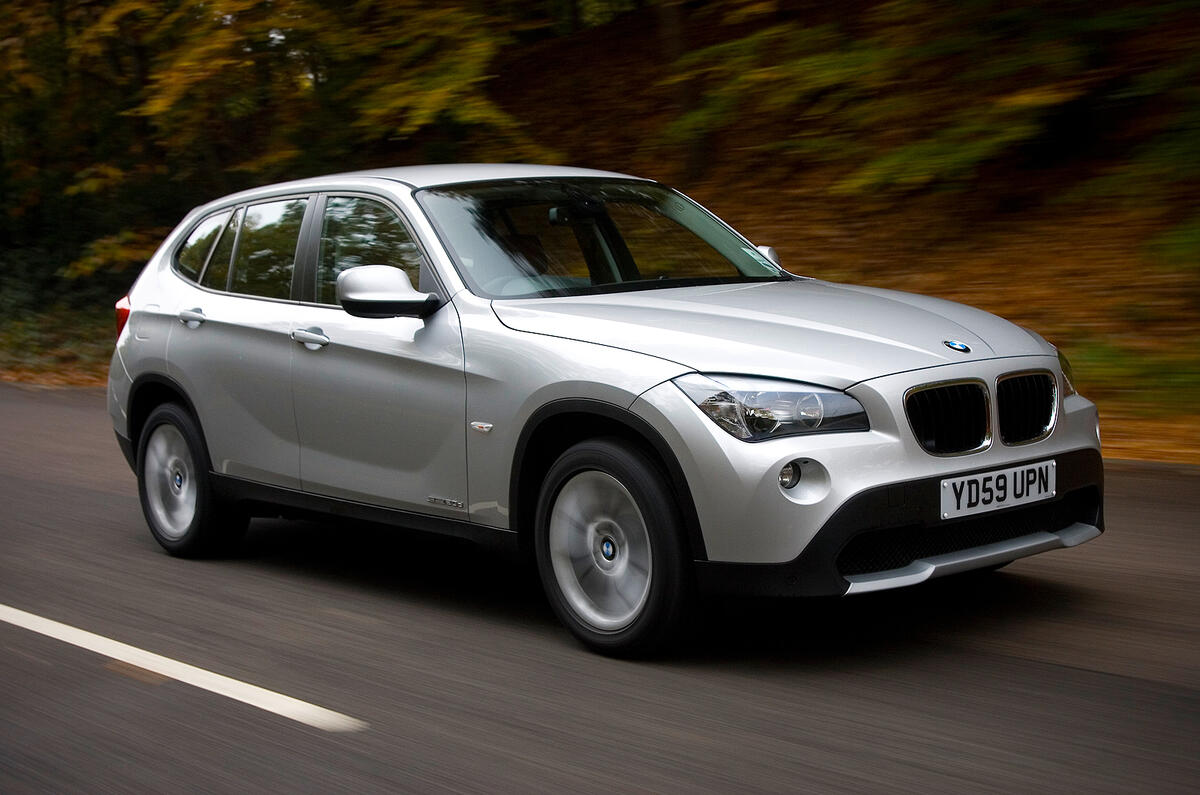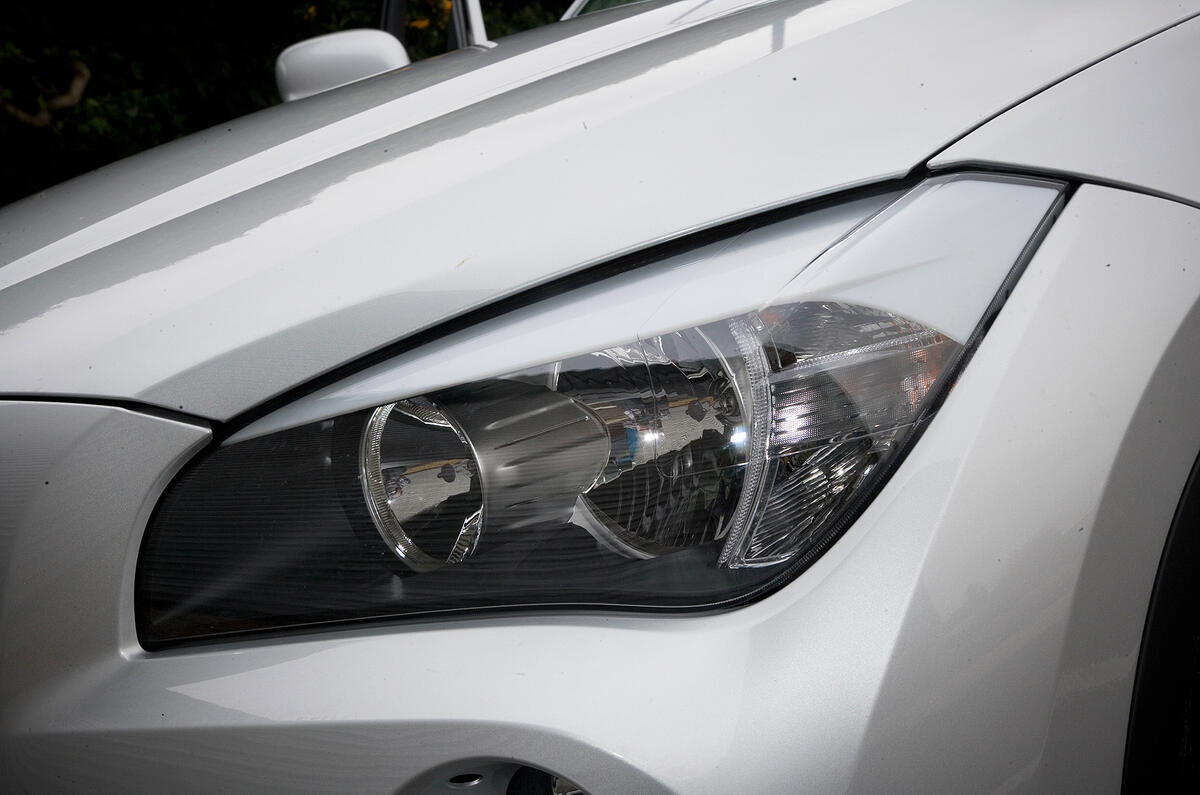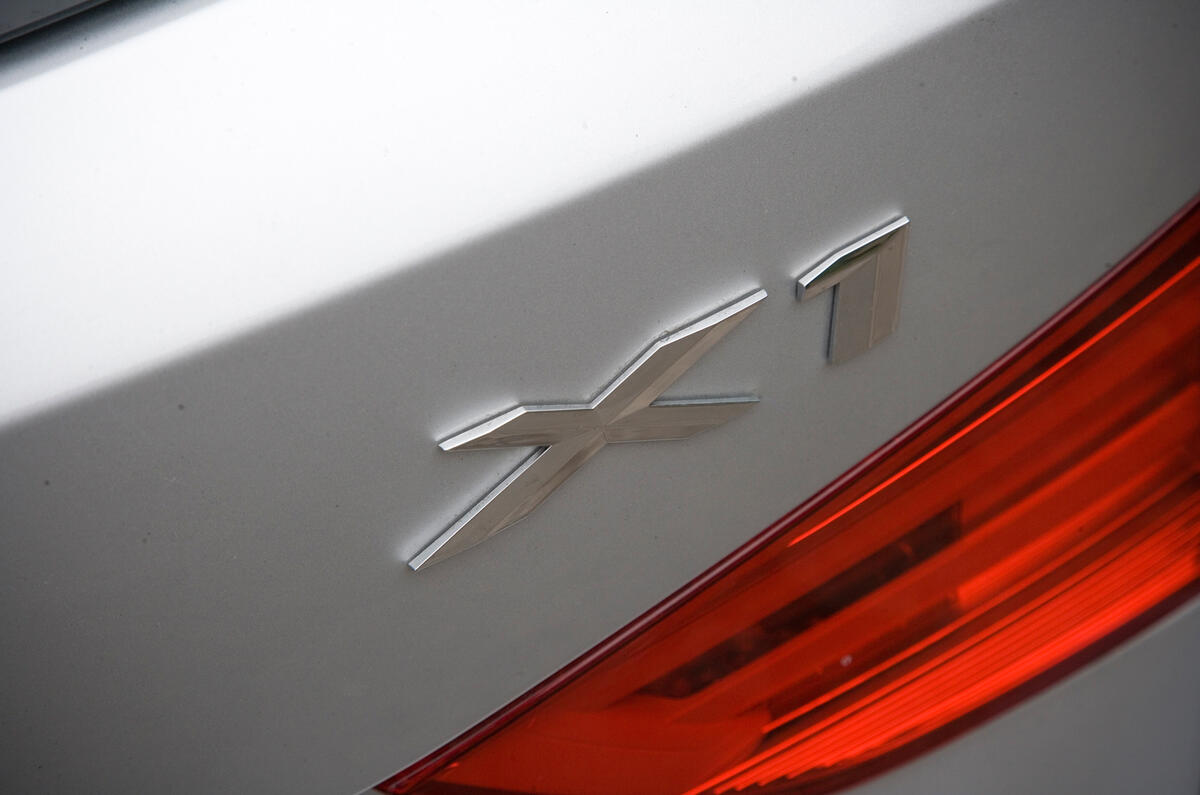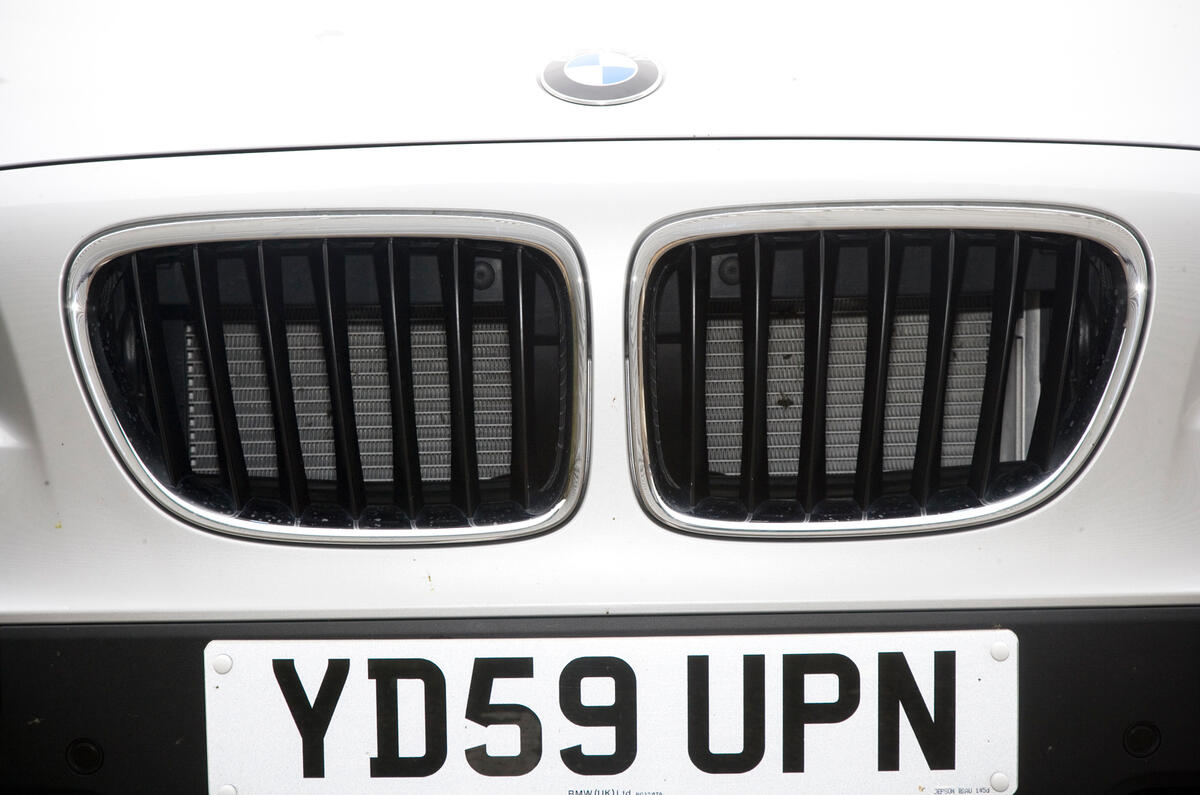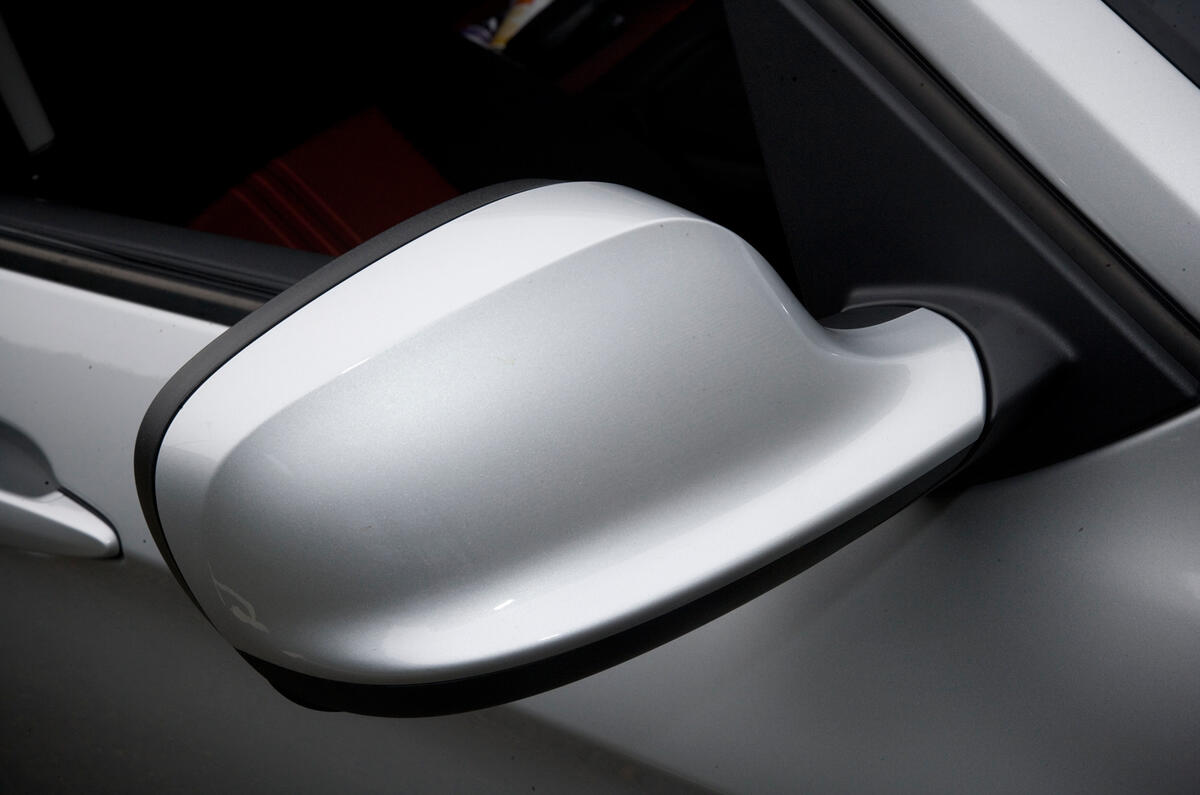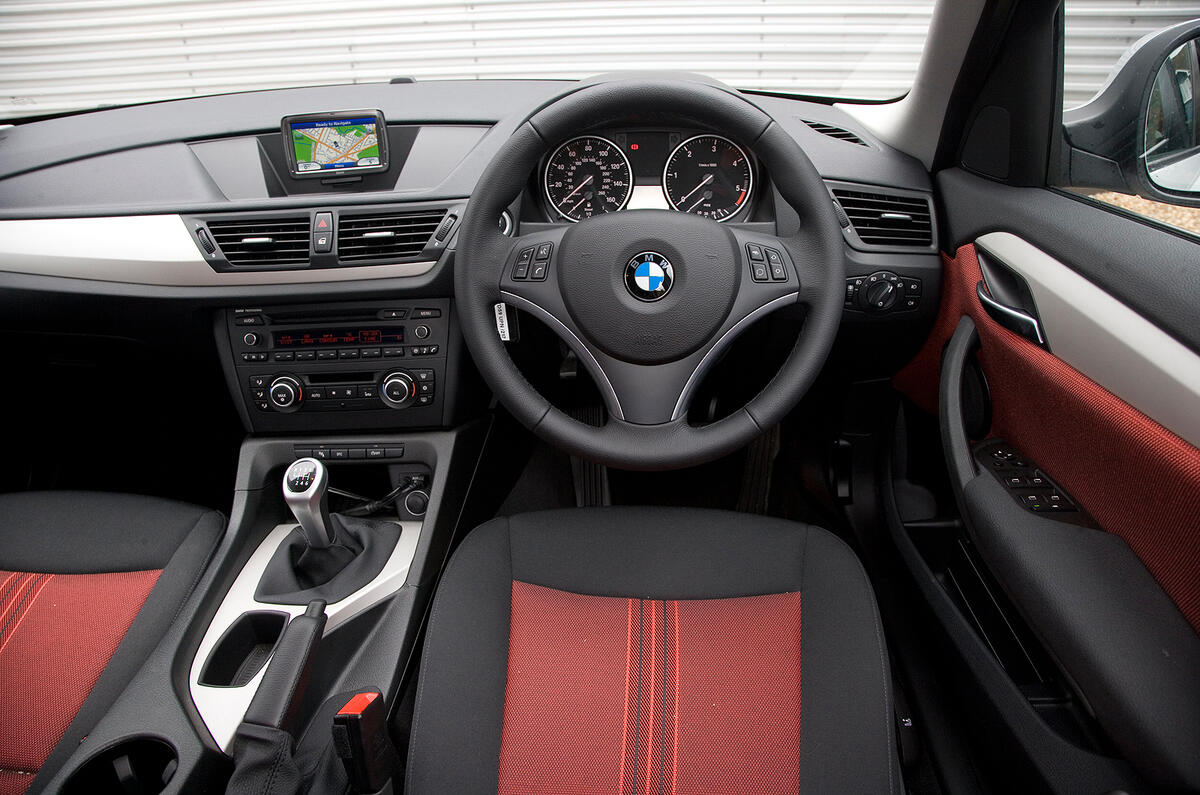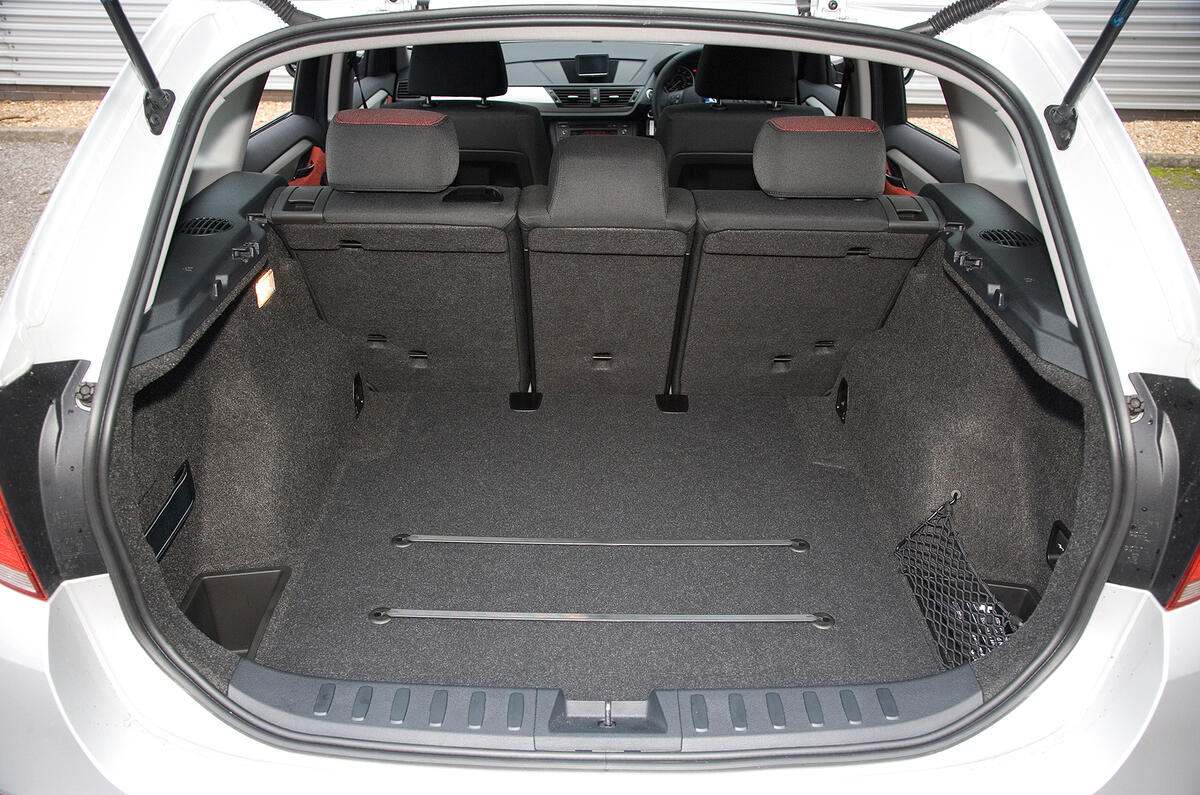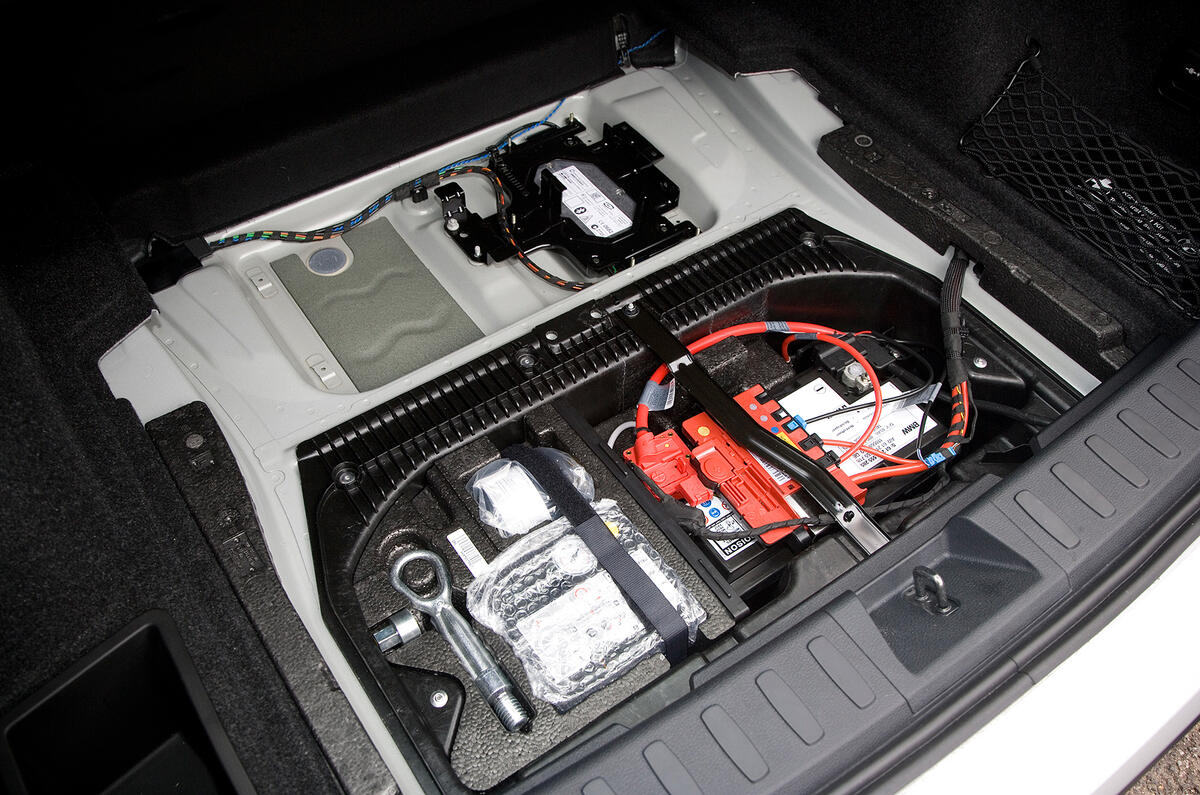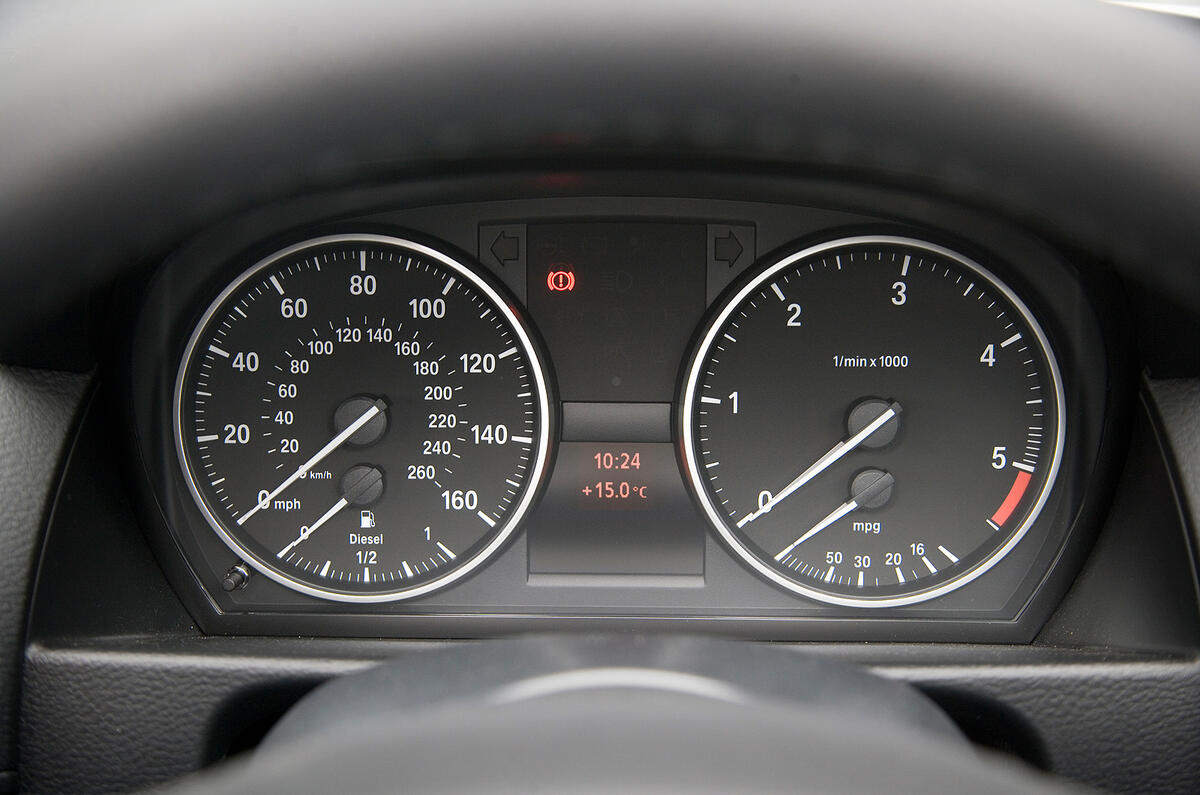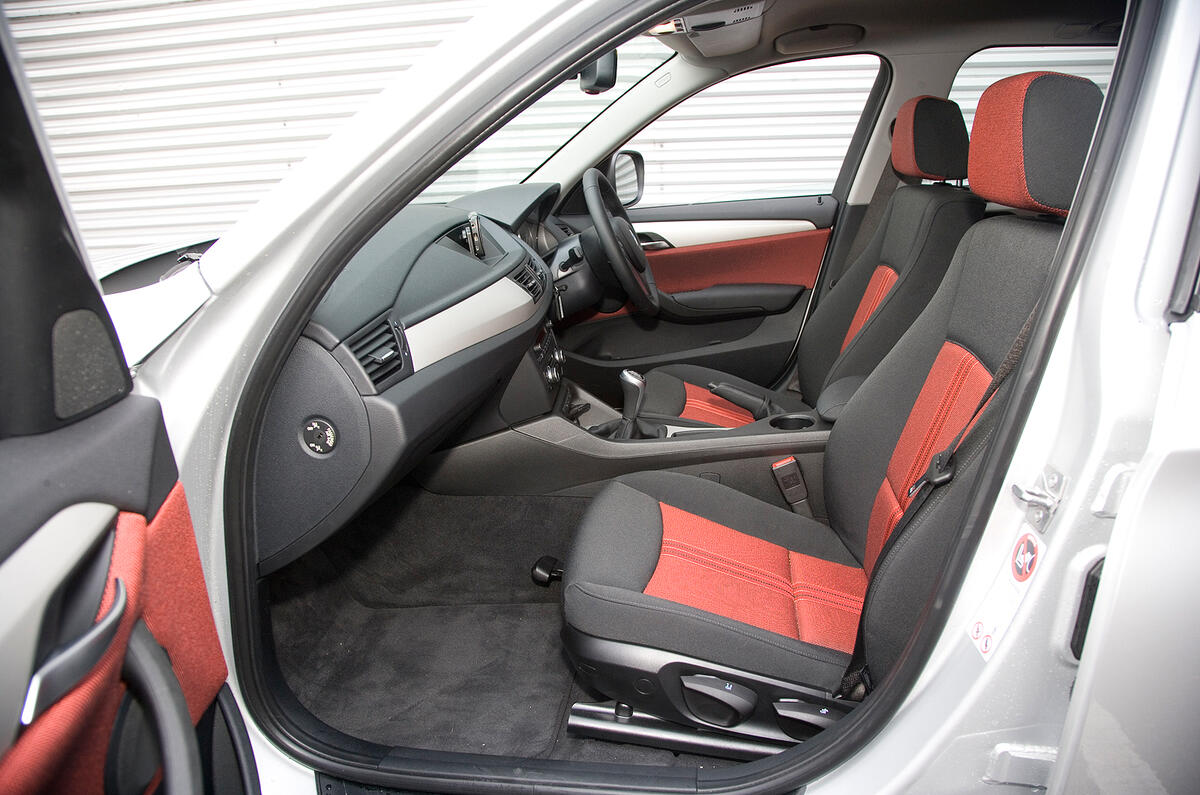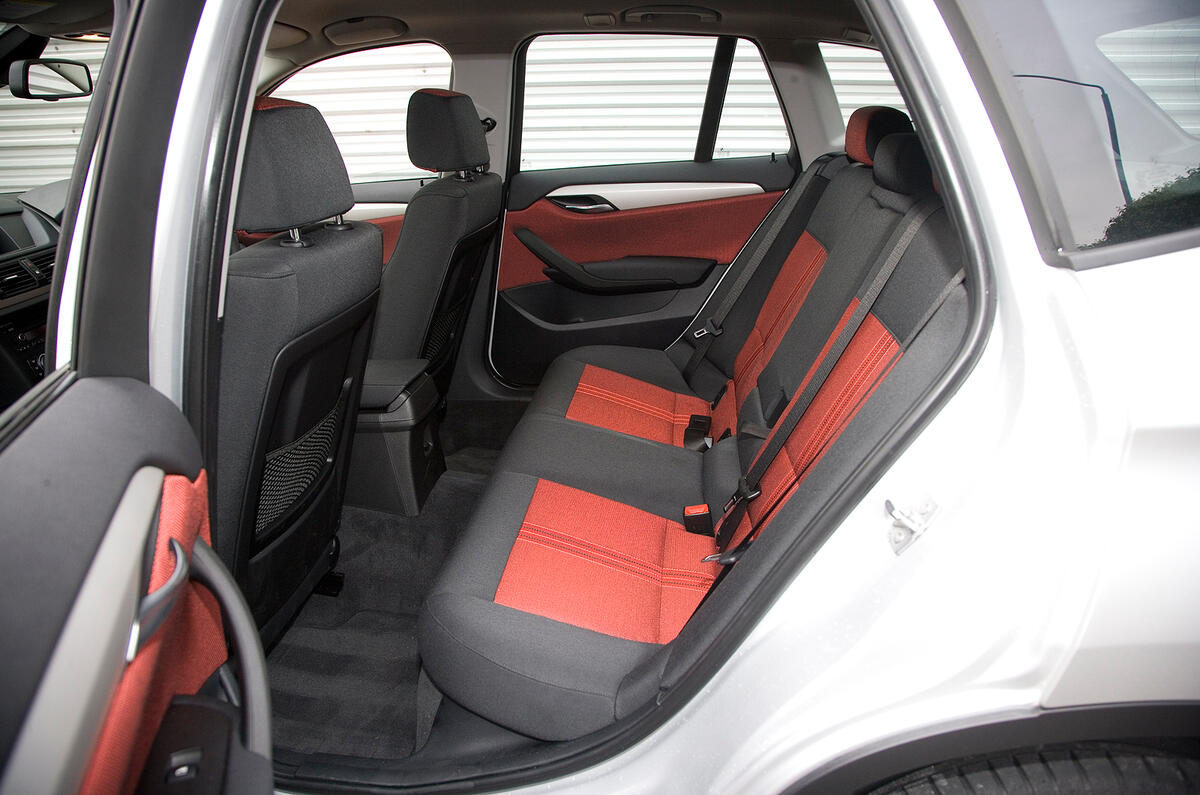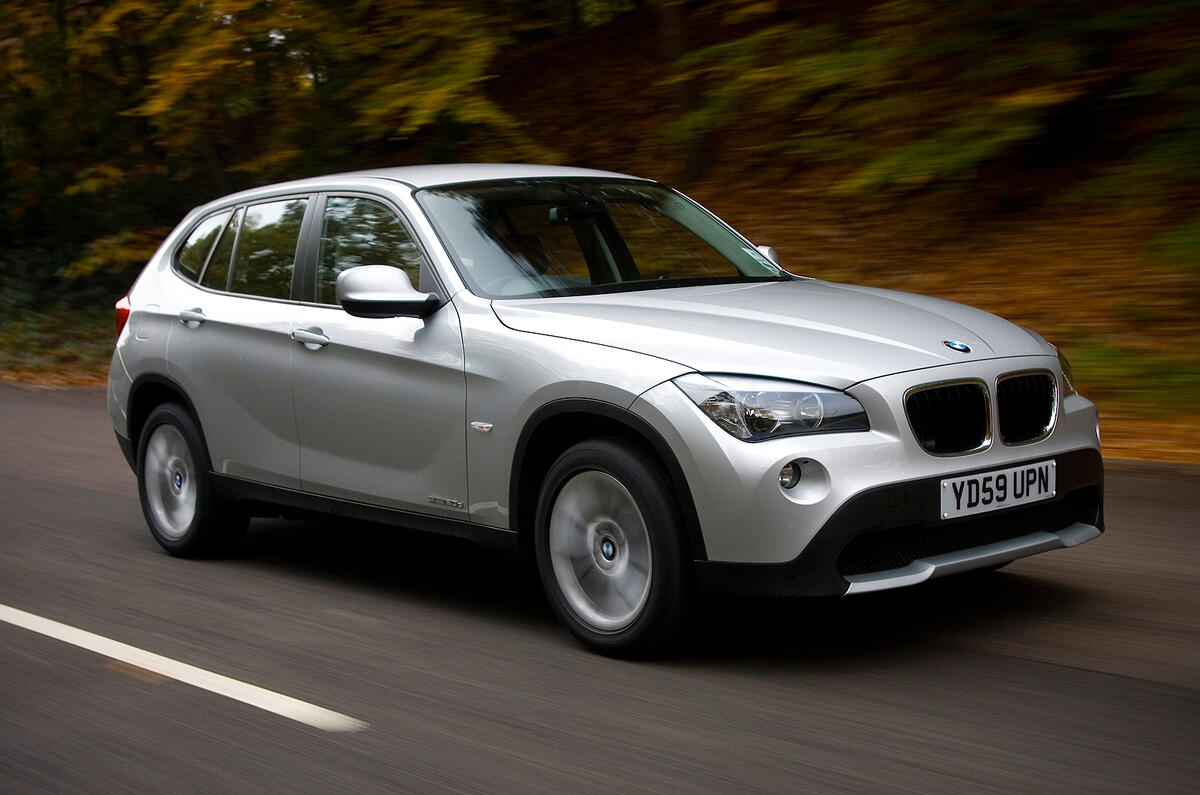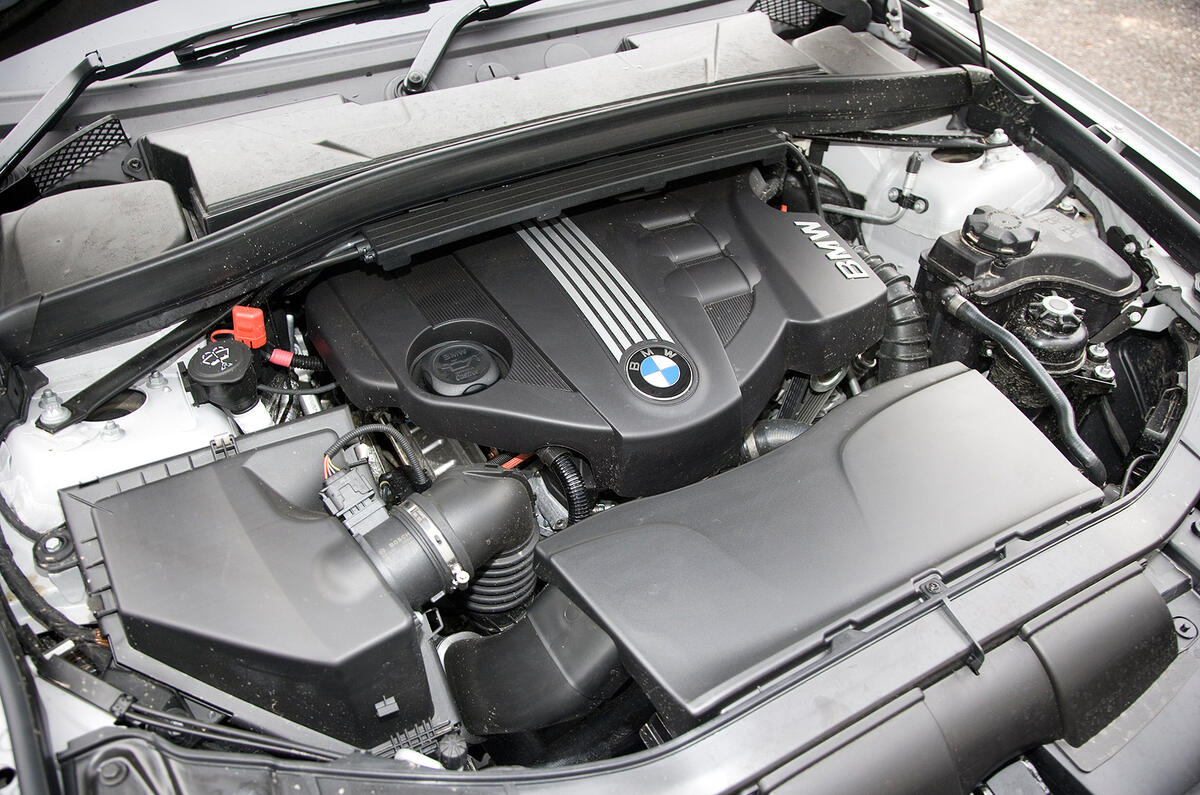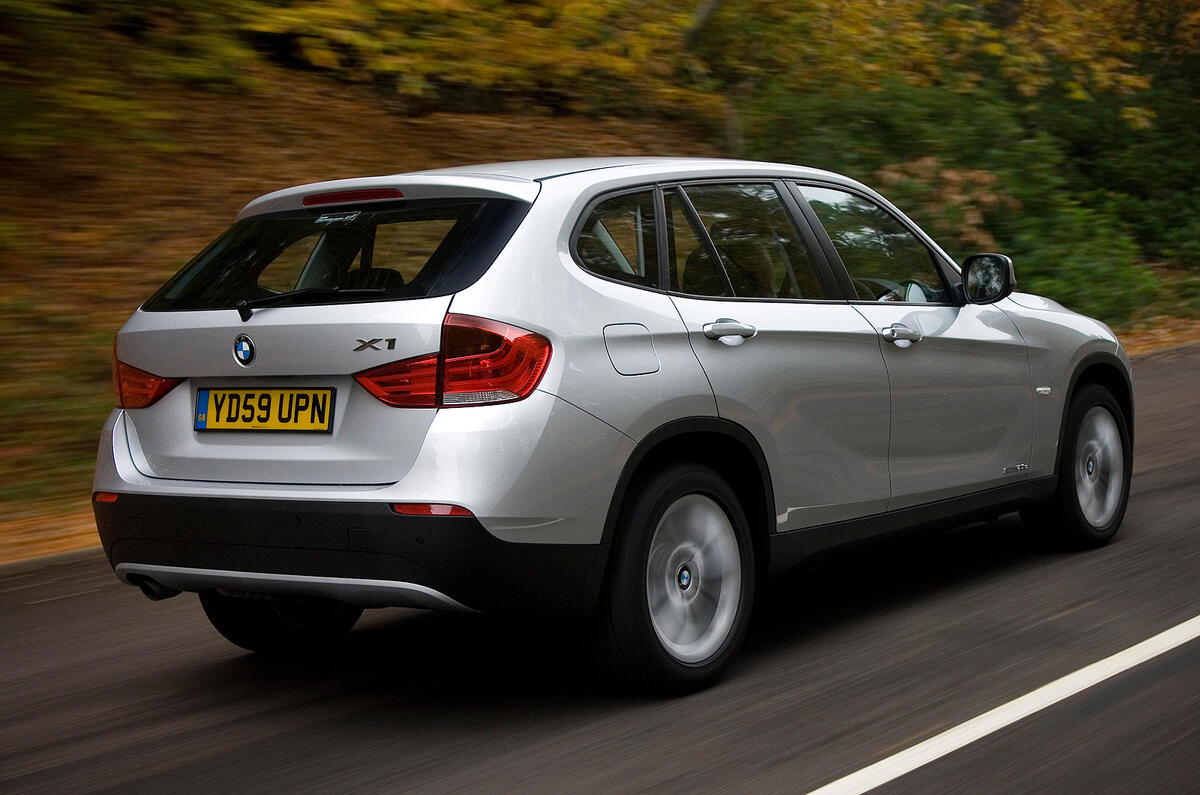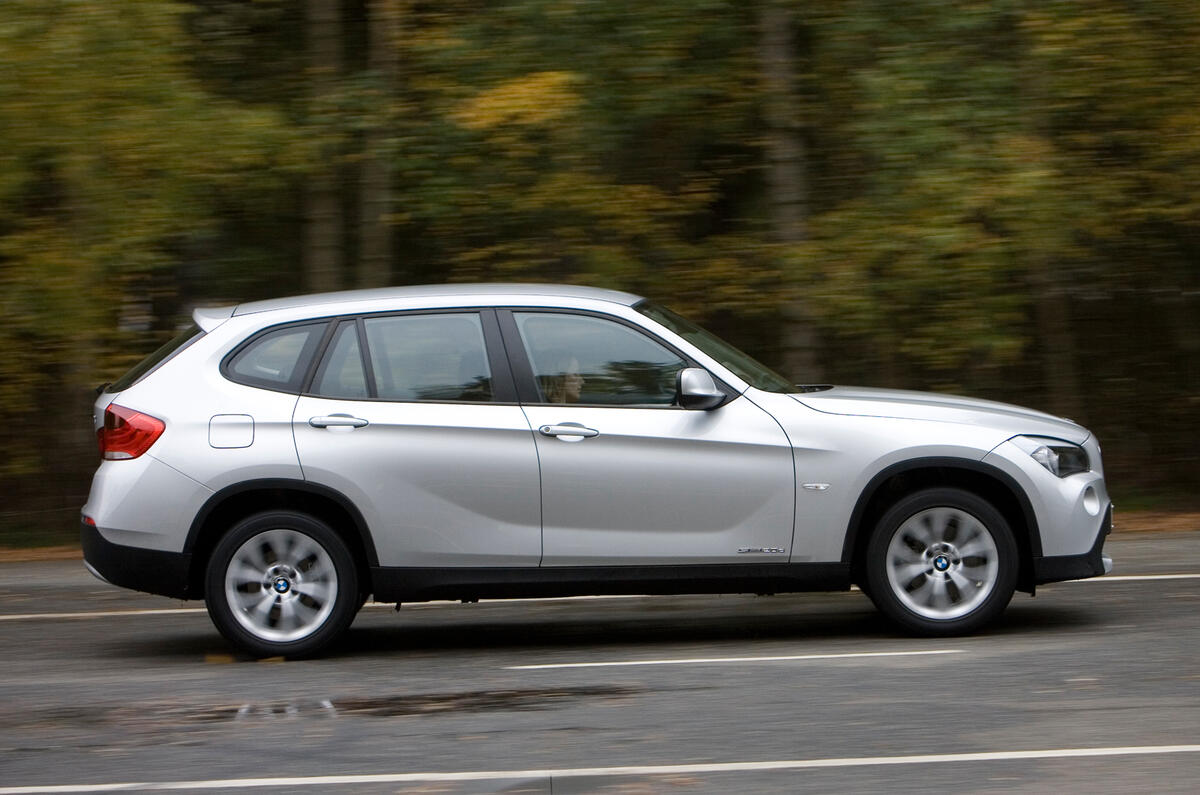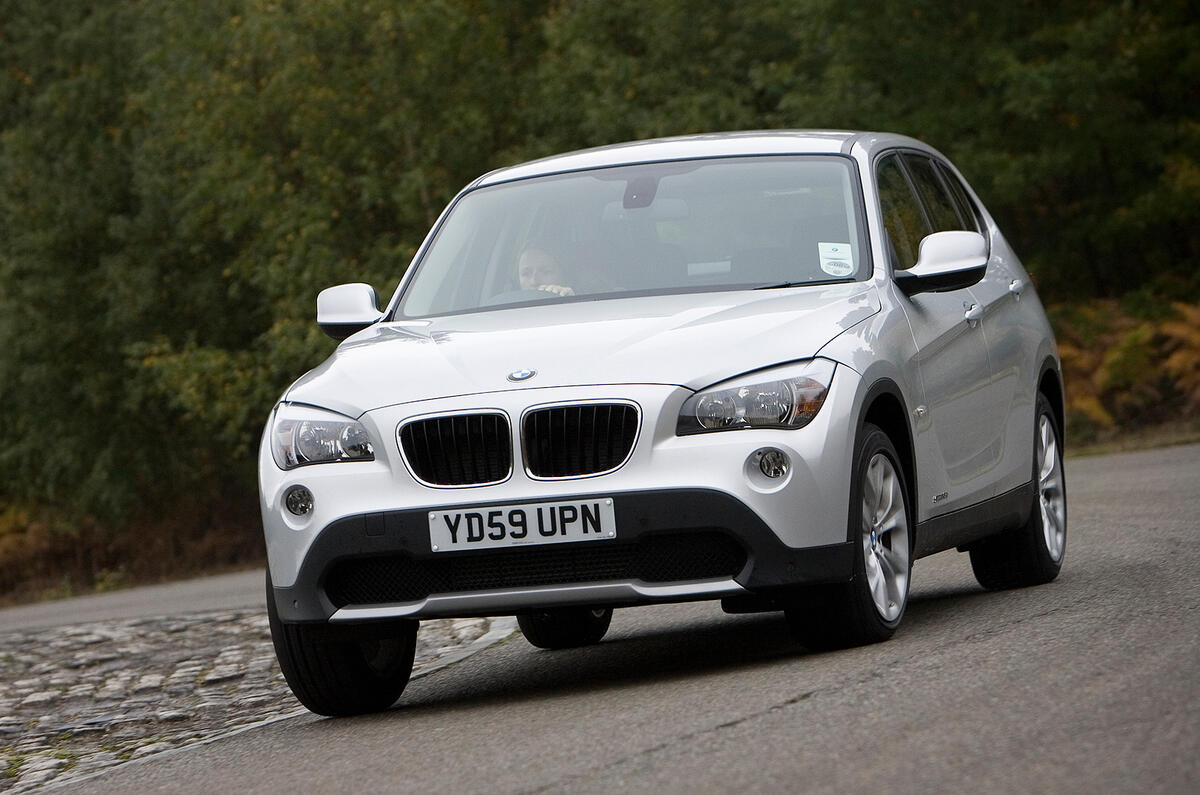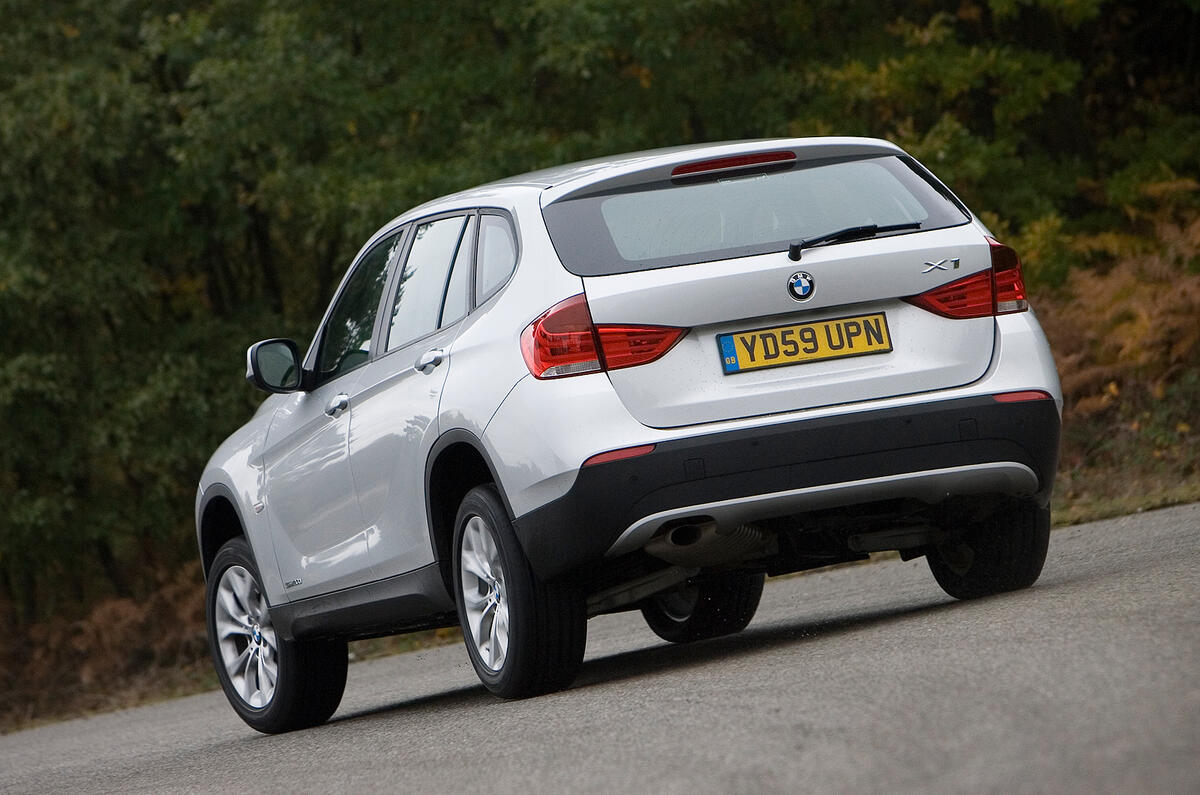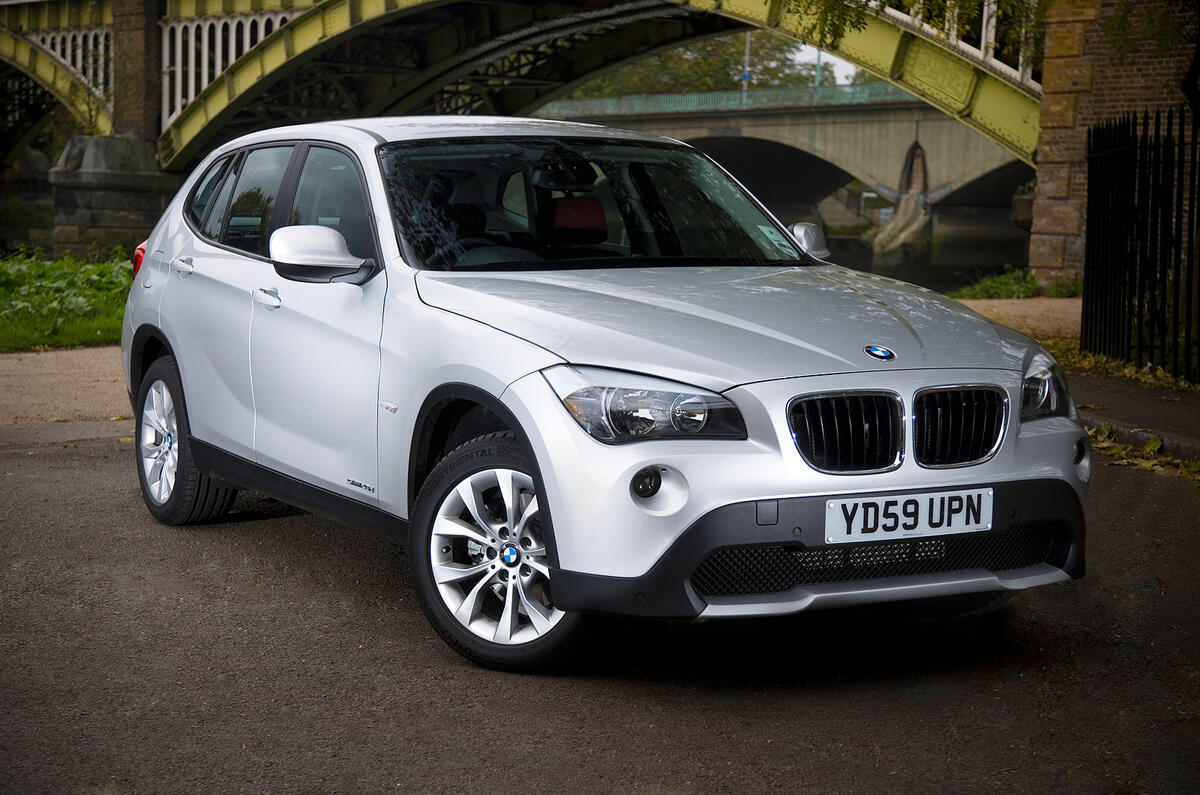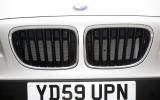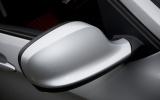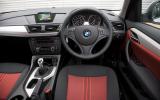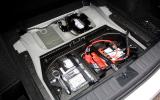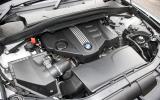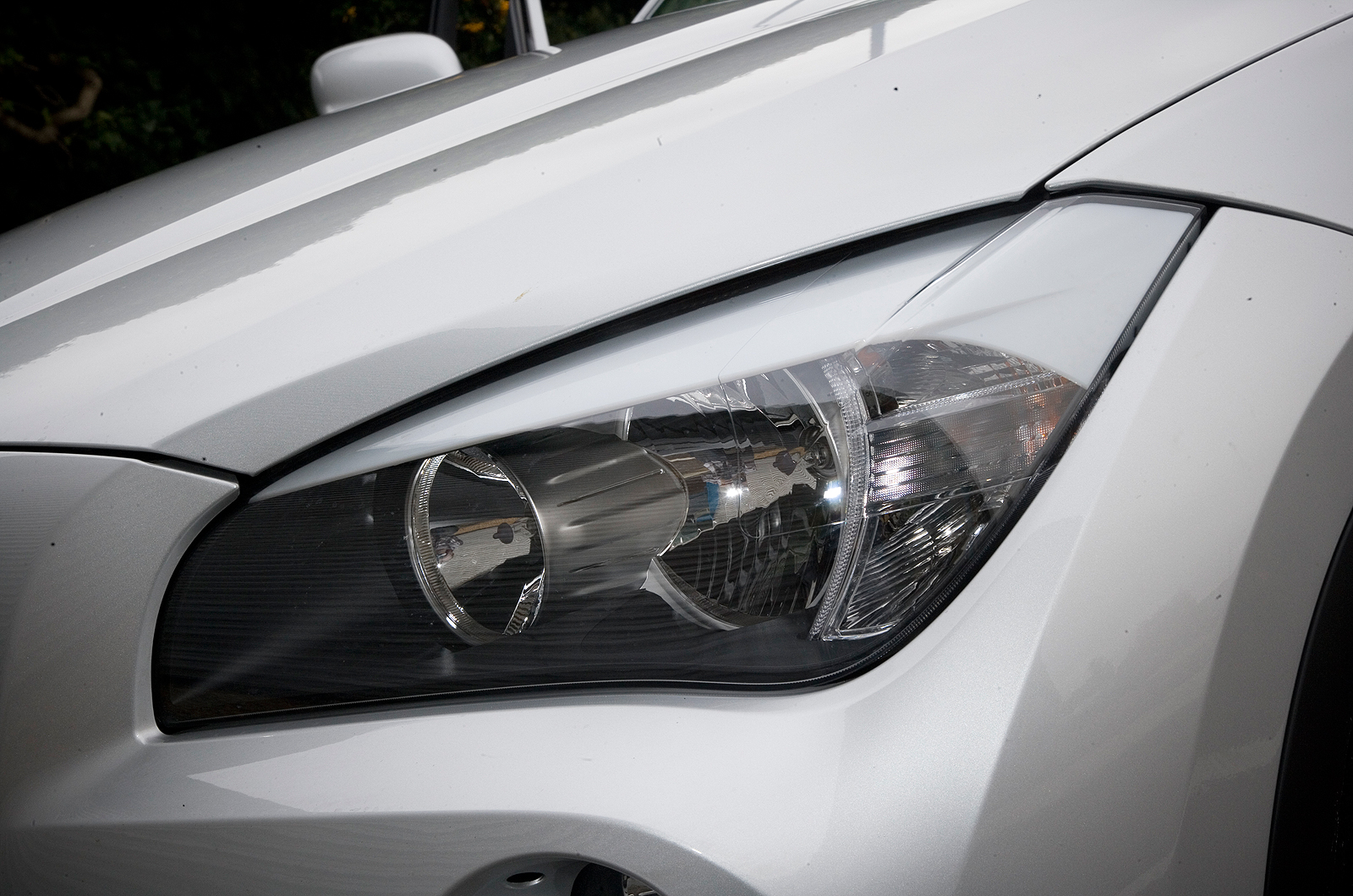The X1 does have a unique selling point among BMW SUVs: some models are offered with rear-wheel drive, under the sDrive variant.
The rear-drive offerings are the sDrive 18d and 20d, which both come with BMW’s 2.0-litre turbodiesel in 141bhp and 161bhp states of tune respectively, and 182bhp in Sport and M Sport guise.
In the 182bhp, 258lb ft guise found in the sDrive 20d SE, BMW’s 2.0 oilburner has enough shove to make the X1 feel spritely. It’s tractable from low revs, with only a little lag, and there’s ample mid-range shove for overtaking.
This is helped further by a six-speed gearbox that’s slick, provided you’re positive enough with it. However, in this model the X1 lacks engine refinement and is considerably noisier than in any of its 3 Series applications; indeed, we’ve never heard this particular unit being so vocal, even in the 1 Series.
It does settle down when warmed up and cruising – decently subdued road and wind noise play their part there, too – but the engine is simply too audible too much of the time. This leads us to conclude that the slightly cheaper cabin materials and shorter bodyshell are not the only reasons for the car’s weight advantage over a 3 Series Touring; a portion of sound deadening has clearly been removed from BMW’s bottom line, too, and you notice.
Both 18d and 20d are also available as four-wheel-drive xDrive variants. The standard gearbox is a six-speed manual unit. A mild refresh of the BMW X1 in 2012 ushered in a new option of an eight-speed transmission whose rangey upper ratios meant useful economy gains across much of the line-up. The eight-speeder is available all X1s save for the sDrive18 and 20d Efficient Dynamics.
The UK range is topped by the 2.0-litre, 215bhp twin-turbodiesel xDrive 25d, which is available only with four driven wheels and an automatic transmission. In this variant, the gutsy engine really grabs your attention.
Although the 2.0-litre diesel unit is relatively small in outright capacity, the combination of twin turbocharging and the latest in common rail technology helps provide it with the sort of shove to shame many larger engines.
We’d only go for a four-wheel drive X1 if you really need it, though; the drag of the permanent four-wheel drive system via a central clutch, which can apportion power entirely to the front or rear, makes the xDrive's economy, while good for the class, worse than a two-wheel drive X1. For example, the sDrive 20d has a claimed combined fuel economy of 53.3mpg compared to the equivalent xDrive version’s 48.7mpg.
All five cars are available in SE or M Sport trim, while the sDrive 20d is also offered as a frugal EfficientDynamics version.
The X1’s global range-topper is the xDrive28i, equipped with a mildly detuned version of the firm’s six-cylinder petrol engine, but that’s not available in Britain.




